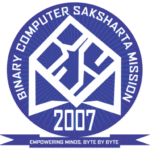For Rural Areas
- Affordable Fees
Our low-cost courses ensure rural students can access quality computer education without financial strain. - Localized Centers
Training centers in rural areas reduce travel burdens and bring education closer to communities. - Basic Computer Literacy
Foundational courses focus on essential skills like typing, internet browsing, and MS Office, preparing students for basic digital tasks. - Skill Development for Local Jobs
Courses in data entry, digital bookkeeping, and e-commerce prepare students for local job markets. - Courses in Local Languages
Instruction in regional languages makes learning more effective and inclusive for rural learners. - Focus on Agriculture Technology
Specialized training teaches farmers to use technology for weather forecasting, market prices, and advanced farming methods. - Empowering Women and Marginalized Groups
Programs specifically designed to empower women and underserved groups with computer skills for self-reliance. - Access to E-Governance Tools
Training in using government portals, online banking, and digital payment systems promotes independence. - Community-Based Learning
Group classes foster peer learning and collaboration in rural communities. - Awareness and Outreach Programs
Initiatives to raise awareness about the importance of digital literacy and its role in economic development. - Encouraging Entrepreneurship
Rural entrepreneurs are taught to use digital tools for marketing, accounting, and business growth. - Cybersecurity Training
Awareness programs teach rural students to use the internet safely and avoid cyber threats. - Bridging the Digital Divide
Efforts focus on equipping rural learners with the same opportunities available to urban students. - Subsidized Programs for Farmers and Artisans
Special discounts for artisans and farmers ensure they benefit from digital tools for their professions. - Learning Through Mobile Apps
Mobile-compatible courses allow learners to access materials using smartphones, which are more common in rural areas.
For Urban Areas
- Advanced IT Training
Urban learners can benefit from specialized courses in programming, web development, data science, and graphic design. - Industry-Relevant Certifications
Training programs prepare students for globally recognized certifications such as Microsoft, Google, and Cisco. - Placement Opportunities
Urban learners gain access to internships and job placements through partnerships with leading companies. - Workshops on Emerging Technologies
Regular sessions on AI, machine learning, blockchain, and cloud computing keep students updated with industry trends. - Flexible Learning Schedules
Evening, weekend, and online classes accommodate the busy lives of urban professionals and students. - Freelancing and Gig Economy Skills
Courses teach urban students to excel on platforms like Upwork, Fiverr, and Freelancer, enabling global opportunities. - State-of-the-Art Infrastructure
Modern computer labs with high-speed internet ensure an enhanced learning experience. - Personalized Career Guidance
Tailored counseling sessions help urban students choose the right career path and excel in their chosen field. - Entrepreneurship Development
Programs guide urban learners in launching their own startups or freelance businesses in the tech industry. - Soft Skills and Communication Training
Urban learners are trained in presentation, teamwork, and professional communication to thrive in corporate environments.
